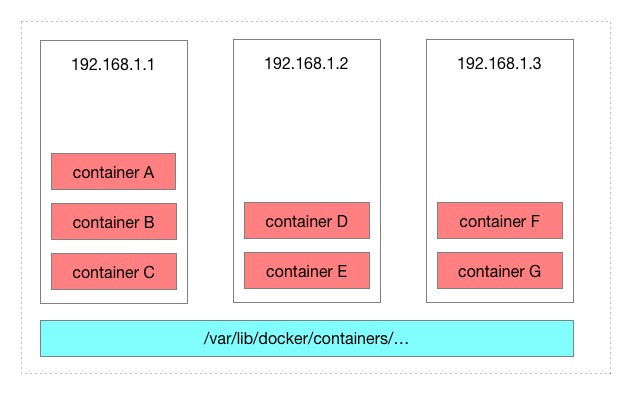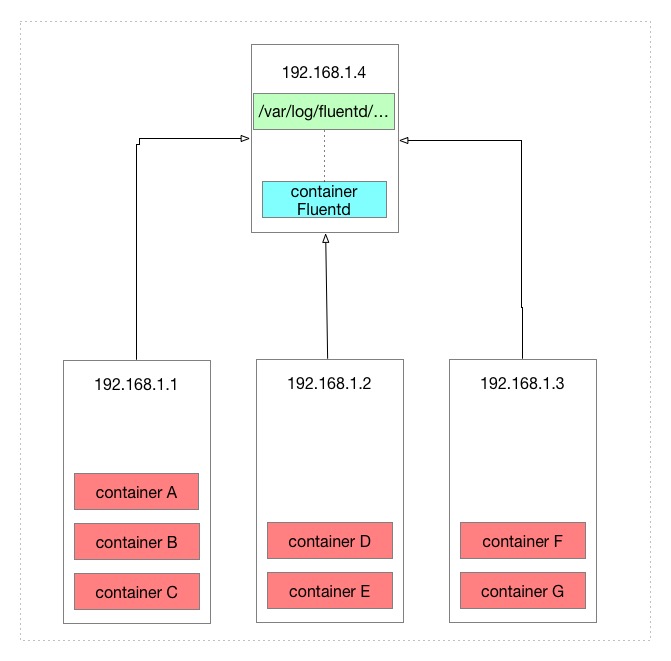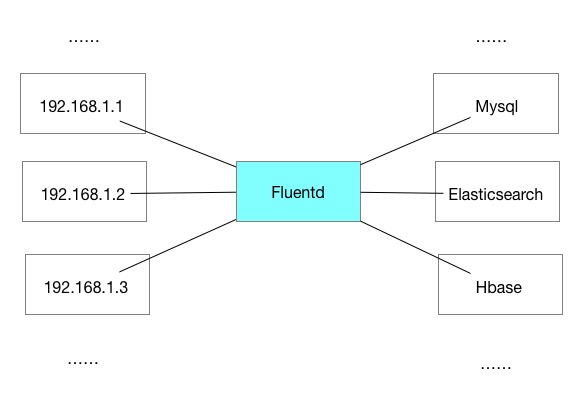Preface
The default log driver for docker is json-file Every container will generate a / var/lib/docker/containers/containerID/containerID-json.log locally. The log driver supports extension. This chapter focuses on the fluent driver collecting docker logs
Fluentd is an open source data collector for unified logging layer. It is the sixth CNCF graduation project after Kubernetes, Prometheus, envy, CoreDNS and containerd. It is commonly used to compare with elastic's logstash. Relatively speaking, fluentd is lighter and more flexible. Now the development of fast community is very active. When writing this blog, the star of github is 8.8k, and the fork is 1k
premise
- docker
- understand fluentd To configure
- docker-compose
Prepare profile
docker-compose.yml
version: '3.7' x-logging: &default-logging driver: fluentd options: fluentd-address: localhost:24224 fluentd-async-connect: 'true' mode: non-blocking max-buffer-size: 4m tag: "kafeidou.{{.Name}}" #Configure the tag of the container with kafeidou. As the prefix, and the container name as the suffix. Docker compose will add the copy suffix to the container, such as fluent 1 services: fluentd: image: fluent/fluentd:v1.3.2 ports: - 24224:24224 volumes: - ./:/fluentd/etc - /var/log/fluentd:/var/log/fluentd environment: - FLUENTD_CONF=fluentd.conf fluentd-worker: image: fluent/fluentd:v1.3.2 depends_on: - fluentd logging: *default-logging
fluentd.conf
<source> @type forward port 24224 bind 0.0.0.0 </source> <match kafeidou.*> @type file path /var/log/fluentd/kafeidou/${tag[1]} append true <format> @type single_value message_key log </format> <buffer tag,time> @type file timekey 1d timekey_wait 10m flush_mode interval flush_interval 5s </buffer> </match> <match **> @type file path /var/log/fluentd/${tag} append true <format> @type single_value message_key log </format> <buffer tag,time> @type file timekey 1d timekey_wait 10m flush_mode interval flush_interval 5s </buffer> </match>
Because fluent D needs to have write permission in the configured directory, it needs to prepare the directory where log is stored and give permission first
Create directory
mkdir /var/log/fluentd
Give permission, here for experiment demonstration, direct authorization 777
chmod -R 777 /var/log/fluentd
Execute the command in the directory of docker-compose.yml and fluent.conf:
docker-compose up -d
[root@master log]# docker-compose up -d WARNING: The Docker Engine you're using is running in swarm mode. Compose does not use swarm mode to deploy services to multiple nodes in a swarm. All containers will be scheduled on the current node. To deploy your application across the swarm, use `docker stack deploy`. Creating network "log_default" with the default driver Creating fluentd ... done Creating fluentd-worker ... done
Check the log directory. There should be a corresponding container log file:
[root@master log]# ls /var/log/fluentd/kafeidou/ fluentd-worker.20200215.log ${tag[1]}
This is my last experiment result. I will create a ${tag[1]} directory, which is quite strange, and there will be two files in this directory
[root@master log]# ls /var/log/fluentd/kafeidou/\$\{tag\[1\]\}/ buffer.b59ea0804f0c1f8b6206cf76aacf52fb0.log buffer.b59ea0804f0c1f8b6206cf76aacf52fb0.log.meta
If you understand this, you are welcome to communicate!
Architecture summary
Why not use docker's original log?
Let's first look at the structure of the original docker log:

Docker will generate a log file for each container in / var/lib/docker/containers/containerID/containerID-json.log path of the local machine to store the docker logs
In the figure above, there are 7 containers in total. If there are 7 microservices, it is inconvenient to view the logs. In the worst case, you need to view the logs of each container on three machines
What's different with fluent D?
After using fluent to collect docker logs, you can summarize the containers together. Take a look at the architecture after configuring the fluent configuration file of this article:

Because fluent D is configured to be stored in the local directory of the machine where fluent D is located, the effect is to collect the container logs of other machines into the local directory of the machine where fluent D is located
Can fluent only collect container logs locally?
In fact, fluent can transfer the collected logs out again, for example, to the storage software such as elastic search

Fluent flexibility
There are many other things that fluent D can do. Fluent D itself can be a transport node as well as a receiving node. It can also filter specific logs, format specific content logs, and transmit the matching specific logs again. Here is just a simple effect of collecting docker container logs
Originating from Four coffee beans , reprint please state the source
Pay attention to the official account - > four coffee beans] get the latest content.